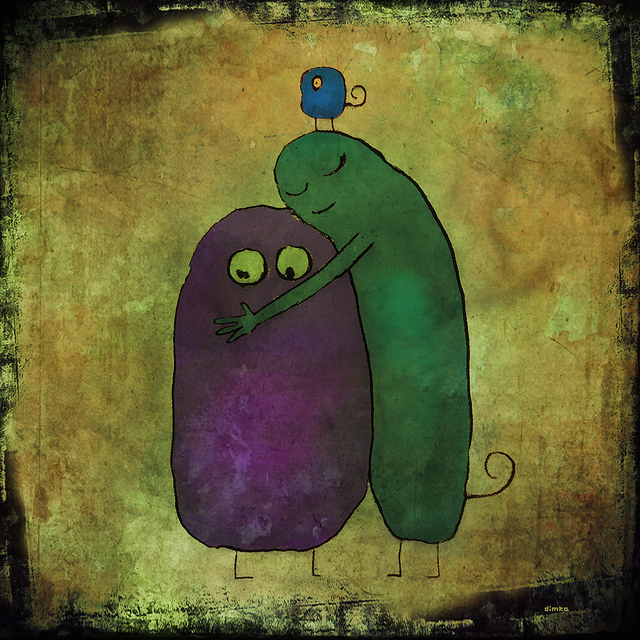Actually, what needs to change is that question.
All relationships change the people who are in them.
Nobody goes through the fire trial of romantic love and comes out the same on the other side.
In fact, I would argue that for a relationship to last in the long-term—i.e. for two differing individuals to do the hard work of unpacking their own souls so they can better understand each other and live together in harmony—healthy change is essential.
So I believe a more fitting question would be, what is healthy change, and what isn’t?
Healthy change:
Brings you closer to understanding the truth about yourself.
Leads you to confront your darkness, and figure out how to deal with it.
Leads you to recognize detrimental thought patterns and attitudes that sabotage your own potential for fulfillment.
Can be extremely difficult and painful in the beginning, but rewards you with the power of self-knowledge and the joy of self-actualization.
Unhealthy change, on the other hand:
Makes you feel disconnected from your true self; your identity becomes what you think your partner wants you to be.
Makes you more fearful of, and insecure about, the dark places inside you.
Leads you to smother, repress or ignore your own needs.
May bring you temporary, superficial gratification, but becomes increasingly painful and difficult to sustain.
Some examples of each:
Unhealthy change is silencing yourself about important topics to avoid a fight. Healthy change is examining the deep-seated reasons that fights happen, and learning to communicate better with your partner.
Unhealthy change is stifling your personality so your partner doesn’t think you’re flirting with others. Healthy change is exploring your own attitudes to trust, jealousy and boundaries, and finding out if they are compatible with your partner’s.
Unhealthy change is suppressing your libido, or regularly having sex when you don’t want to. Healthy change is discovering what you want from a sexual relationship, and having frequent, open-hearted discussions with your partner about both of your needs.
Unhealthy change is giving up on your dreams, aspirations, hobbies, etc. for a relationship. Healthy change is determining why these things are important to you, how highly you want to prioritize them, and whether you can find a comfortable balance between your personal interests and your relationship.
Those look like three nice, neat and easy lists. So we’re done, right?
Not so fast.
There are a few other important things to think about:
1. Unhealthy change is not about being stuck in a bad relationship.
It’s about you.
It might be tempting to blame unhealthy change on a selfish partner, and certainly some people’s approach to relationships will encourage this. But you are the only one who can choose what kind of change you will undergo.
People allow themselves to undergo unhealthy change when they are afraid: afraid of losing the relationship, afraid of being alone, afraid of confronting the truth about themselves. Unhealthy change can take place even in the context of an otherwise positive relationship if one or both partners lack the awareness or will to deeply examine the hidden parts of their own psyche.
With one exception: People in abusive relationships who fear for their own or their children’s physical safety often have to bend to the demands of their abuser as a survival strategy. This post is not meant in any way to blame victims of abuse for doing whatever they need to do to stay safe.
2. Healthy change will not ensure a happy relationship.
I believe that healthy change is necessary for a happy relationship. But healthy change can take place within an unworkable relationship, too—and may in fact be the catalyst that brings that chapter to an end.
Also, the fact that one person may be ready to enact healthy change within their relationship does not always mean their partner will be ready as well.
3. Change never ends.
Change, healthy or otherwise, is an uncomfortable process, and many people avoid it until they are dragged through its door by circumstances that have become intolerable. Afterward, they may feel relief that they have come through the experience with a better perspective, and hope that the way ahead is now tranquil and clear.
But the cycle of breaking painfully open, examining the pieces, learning from experiences and moving closer to the ultimate truths about who we are is one that will repeat over and over, both within and without the context of a relationship, for the whole of our lives.
It might even be why we are here.
Love elephant and want to go steady?
Sign up for our (curated) daily and weekly newsletters!
Author: Chandra McCann
Editor: Emily Bartran
Photo: Dimka/Flickr









Read 1 comment and reply